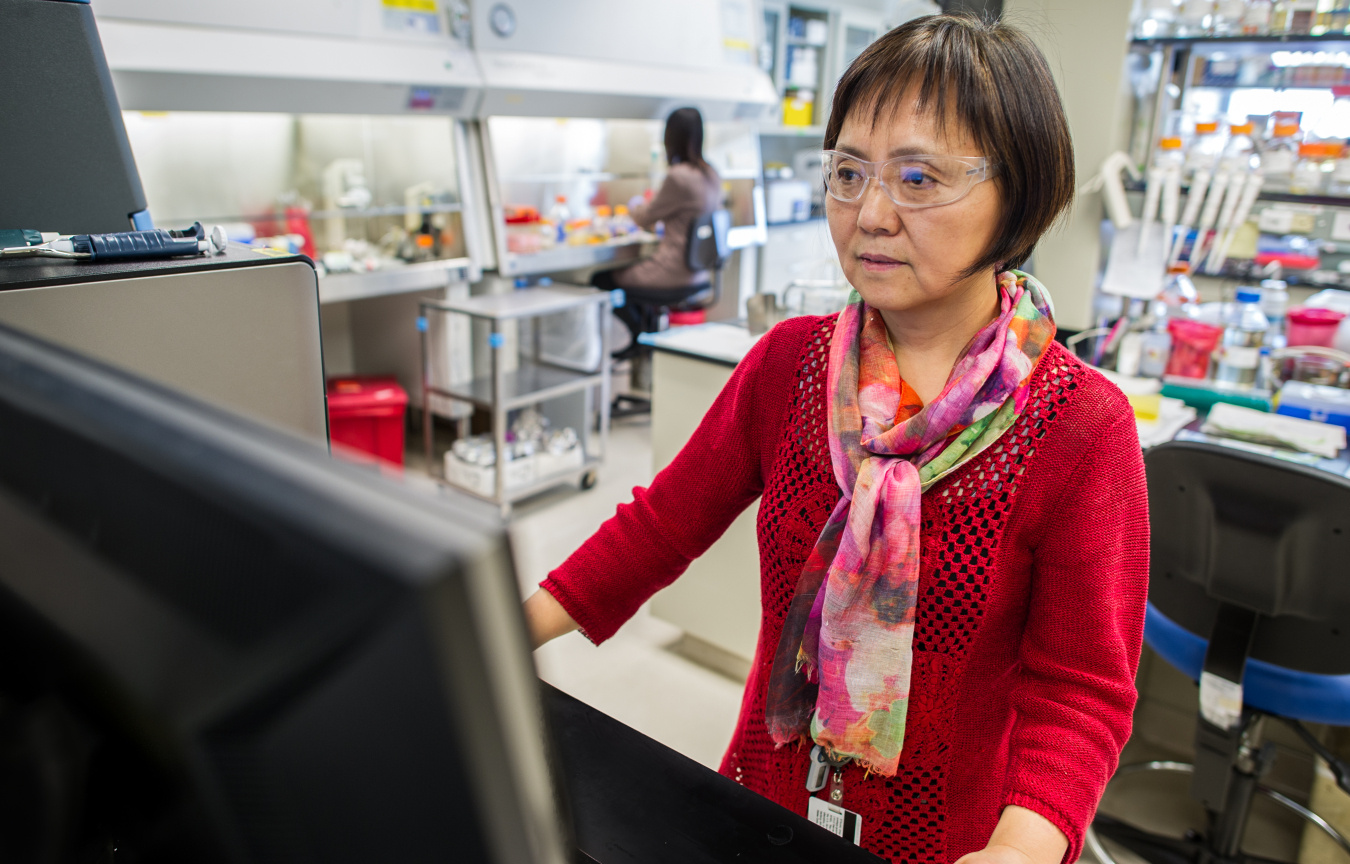
Photo courtesy of Dennis Schroeder | National Renewable Energy Laboratory.
The job of senior biological scientist is an advanced position in bioenergy, in the agriculture, life, and physical sciences career sub-sector. Job seekers with agriculture, life, and physical sciences backgrounds or a career in the sciences could consider this type of advanced bioenergy job.
Senior biological scientists direct research and development projects and programs that explore the leading edges of bio-based technologies to make fundamental science and applications discoveries to advance knowledge and innovation in the bioenergy industry. People in these positions may have careers in bioenergy biological science.
Senior Biological Scientist
| Alternate Title(s) | Senior Cellular Biologist; Senior Biochemist; Senior Computational Scientist; Senior Geneticist; Senior Molecular Biologist; Senior Microbiologist |
| Education & Training Level Description | Doctorate in Life Science Disciplines is required. |
| Experience | 10+ years |
| Job Skills |
|
| Job Profile | Biomass is the only renewable resource that can be converted into infrastructure compatible liquid transportation fuels—such as gasoline, jet, and diesel fuel—in the near term. It can also be used to produce valuable chemicals for manufacturing, as well as to supply power for our electrical grid. The development of improved energy crop traits and critical advances in biology-based conversion technologies will move the industry from the research and pilot stage to large-scale commercialization—turning the vast potential of biomass into a reality. With a strong foundation in the biological sciences, biologists, microbiologists, biochemists, molecular biologists, and geneticists are in a unique position to deliver the key innovations that will drive the industry forward. Biologists apply their knowledge and understanding of the principles of biochemistry, cellular biology, molecular biology, and genetics to help the industry develop novel biological pathways to transform biomass into fuel or high-value chemical products. Modern biological techniques also allow for improvements in crop traits. For example, traits such as drought tolerance, low fertilizer requirements, and increased yield can enhance the profitability and reduce the environmental impacts of bioenergy-related agricultural systems. |
More Advanced Agriculture, Life, and Physical Sciences Jobs in Bioenergy
Related Bioenergy Career Resources
Bioenergy Career Exploration Wheel
